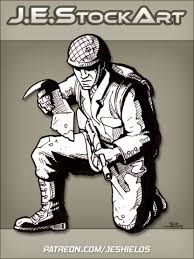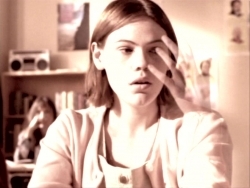 If you’re like me, then:
If you’re like me, then:
1. For the past 15+ years you’ve either lived alone or with a housemate whose level of dirtiness tolerance is much higher than your own, and thus you are the primary/sole cleaner of common spaces,
and
2. You urinate via external genitalia.
Sometimes when I use a public restroom I see cute signs over the toilets or urinals that say “We aim to please! You aim too, please!” As a often-cleaning person (trait A) I absolutely sympathize with these signs. However I’m pretty sure the people who place them don’t have experience urinating with external genitalia (trait B). My penis is, perhaps sadly, not a precisely crafted piece of rigid machinery. It’s a floppy, biological pee-tube. Its physical characteristics vary widely based on temperature, excitement, and recent storage conditions. It sometimes hides subtle kinks or pinches that are not apparent from sensation or visual observation. And there’s no way to “set it to true.”
What I’m saying is, when first one lets loose to pee, ain’t no damn way to tell what’s gonna go where. You just point in a direction, hope for the best, and quickly adjust if expectations don’t match reality. If that’s possible… On occasion a weird pinch will get you a sorta split-stream effect, and adjusting for one makes the other go haywire, and oh god, why is this happening, what did I ever do to deserve this??
This isn’t normally the case, of course. 97% of the time you point, the urine goes basically were you expect, and everyone’s happy. But those other 3% can be a killer.
But even that’s not entirely true. Because even in those 97% of the times that go according to plan, there’s splash. Have you ever let a garden hose trickle from waist-height into a shallow pool of water on the ground? Or held a straw-full of soda a foot over your almost-full glass and then let the liquid drop into the glass? Imagine that effect for 21 seconds. A toilet bowl is deep enough to catch almost all the tiny flying droplets that splatter everywhere… but not quite all. There’ll always be a few little buggers with Olympic aspirations making a leap for freedom that get up onto the seat or rim, or sometimes even further. (This is why carpet in a bathroom is the most disgusting idea known to man. Yes, even worse than pineapple on pizza).
I’m sure that for marking one’s territory far and wide, external genitalia was a godsend. But in the modern era, it is the undisputed inferior way to pee.
And yes, while in theory one could sit to pee like our internal-genitalia’ed brethren, very few people do so.
First, it’s weird. Sitting is what I do to poop. When I sit down on a toilet but I don’t have to crap, my butt gets confused. “What am I doing here?” it asks. “Should I go now? Is it my time? I’m not ready, but ok, here I go…” and the rest of me is all “Wait, no, goddammit! It is not your turn!” And then there’s just chaos.
Second, it’s slow. I gotta take down my pants and undergarments, and turn around, and lower myself, before I can even start. And then I have to do the whole thing again in reverse. Ugh, such a pain. Ain’t no one got time for that.
Third (this is gonna sound kinda sexist, but dammit, I’m stuck in this same patriarchal bullshit as all the rest of you so don’t judge my socially-instilled bad instincts) it feels girly. I know girly isn’t bad. I know this is a stupid emotional reason to not do something that makes sense. But I still live in a time/place where I’ll be looked down on and thought less of for sitting down to pee, but not for spraying urine all over the bathroom stall. Or at least, looked down on less.
But there is one action that solves all of these problems. One blessed act of physical strength and dexterity that turns one from a hated pest to a noble defender of virtue. I speak, of course, of Taking A Knee.
First, Taking A Knee is not weird. There is no confusion with any other common actions, unless one is in the enviable position of being knighted frequently, or in the unenviable position of owning a pair of shoelaces that will not stay tied. Either way, not your butt’s problem.
Second, it’s basically just as fast as standing and peeing. Ok, there’s a split second of extra action required, but it’s barely noticeable. Kneeling has been the preferred way of getting closer to ground for Men of Action since time immemorial, due to how quickly and efficiently one can go from standing to kneeling and back again. It’s literally closer to the starting-spring position of a sprinter than standing is. Should an enemy kick down your door while you are kneel-peeing, you are in a perfect position to launch right into an up-the-wall-flip emergency parkour move to turn the tables on them.
Third, it’s manly as hell.
And it solves all the problems of peeing with a squishy meat hose! No matter how that urine stream bursts forth, when you’re starting out at the same level as the toilet’s rim it’s nearly impossible for the pee to travel up and over it. And being mere inches away from the porcelain means it never gains enough velocity to splash more than a smidgen.
Obviously you don’t want to do this in public bathrooms, where everyone else has been peeing on the floor and your knees will be soiled. But in your private dwelling, doing this will save you a ton of cleaning and unpleasantness. My life has been much improved by this simple fix. And if you are at the private residence of someone who you like, and who’s bathroom looks well-kept, consider kneeling at their place too. They’ll thank you for it later. Except, only in their head. Not literally, out-loud, to you. That’d be weird.
You’re welcome.
 I find myself distressed by the casual fading of my They friends.
I find myself distressed by the casual fading of my They friends.






